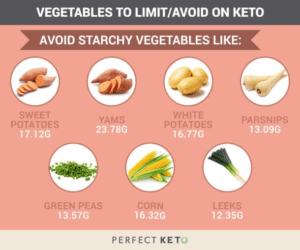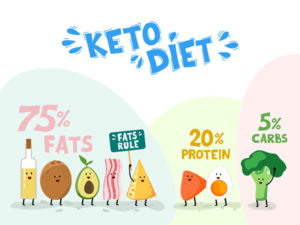Contents
Low Carb Diet
Losing weight can be an ordeal when you have little to no knowledge about how to plan your meals or even about which macronutrients to consume and which ones to avoid. Although a sustainable low carb diet can have done wonders when it comes to weight loss if continued with perseverance it is important to thoroughly research them and seek the help of your doctor.
Obesity And Low Carb Diet
Obesity is a complex disease that’s taking over the world like an epidemic. In scientific terms, obesity is known as an excessive accumulation of body fat. Obesity is a double-sided burden of malnutrition, in today’s world more people around the world are obese than underweight except for the sub-Saharan and Asian countries.
This can cause serious health condition like stroke, even makes you more susceptible to chronic diseases like Endometrial cancer, liver cancer, kidney cancer, and Gastro-cardia cancer, and of course, diabetes.

Uncontrolled diabetes can have fatal effects like kidney damage, heart diseases, blindness, and death. This is why diabetic patients must maintain a healthy diet that does not trigger a spike in blood sugar levels and other dangerous consequences.
A low carb diet for weight loss has been proven to be extremely effective especially for type 2 diabetes because of its efficiency to decrease high blood sugar levels, pumping up the body’s insulin sensitivity, and lowering weight. Apart from the health benefits, it has effects on epileptic patients and patients with Alzheimer’s and Parkinson’s disease.
Types of Low Carb Diets
A Typical Low Carb Diet
A typical low-carb diet is a carb restricting diet to be put simply. The diet works by minimizing your carb intake by emphasizing the consumption of other types of macro and micronutrients.
The daily carb intake in a typical low-carb diet depends on your goals. It can be as restrictive and as dynamic as you want it to be. And the amount and rate at which you want your weight loss to occur.
Ketogenic Diet
A ketogenic diet aims to achieve nutritional ketosis. Nutritional ketosis is a metabolic state that helps your body utilize fat as its primary fuel rather than using carbohydrates and thus slowly utilizing the excessive fat that has been accumulated in the body slowly and has led to a higher Body Mass Index.
Nutritional ketosis helps lower body mass index and reducing body weight while decreasing the level of triglycerides, LDL cholesterol, and blood sugar levels also. Until recently ketosis was viewed with apprehension however with changing times the current advancements in nutritional science it has been proved to have favourable outcomes.
Low Carb Paleo Diet
The low-carb paleo diet is the most famous these days. The main idea is that this supports eating habits from the Palaeolithic era. The diet somehow mimics the way hunter-gatherers used to eat, before the agricultural and industrial revolution.
The diet usually contains whole foods. Several studies show that this diet leads to significant weight loss. Eating unprocessed foods like meat, eggs, seafood, healthy fats. It is also recommended to choose grass-fed meat, if possible.
The Atkins Diet
The Atkins diet curtails the idea of ditching all the high-carb foods from your diet while consuming as much fat and protein as desired. This diet low-carb diet was initially shunned by mainstream health organizations.
Eco Atkins Diet
The vegan version of the Atkins diet is called the Eco Atkins diet. Therefore, it includes consumption of low carb foods and high fat and protein foods however all of these are plant-based. Research has shown that the Eco Atkins diet has shown more weight loss than any other low-carb diet.
While it can be tricky to look for sources of protein in a vegan Atkins diet here are some of the options that can help you feel full while consuming plant-based protein:
- Gluten
- Soy beverages
- Soy burgers
- Paneer
- Tofu
- Nuts
- Eggplants
- Bell peppers
Zero Carb Diet
Although it sounds tricky and hard to implement, some people choose to eliminate all carbs from their diet. They choose to consume eat high fats and proteins like meat, fish, eggs, and other sources.
There are no studies that show Zero carb diet to be safe. Our brain needs sugar to function and not obtaining any sugar from your diet can lead to confusion, weakness, it can also render you unable to make decisions and perform the mentally distressing task, if this diet is sustained for a long time it can lead to brain damage as well.
Low Carb Mediterranean Diet
It has been widely researched that people living in the Mediterranean are less likely to develop heart diseases. Mediterranean diet usually consists of healthy fats that are unrefined. They also tend to consume foods that are rich in fibre (like whole wheat and beans), monosaturated fats like olive and canola oil.
Apart from these factors they also tend to have highly active lifestyles which leaves them at much less risk of cardiovascular diseases and chronic conditions like diabetes.
How To Implement A Typical Low Carb Diet?
A low-carb diet is quite effective and has been proven to reduce body fat most effectively through substituting your body fuel from carbs with other macronutrients.
To achieve this nutritional shedding of carbs it’s important to regulate the fueling and dietary methods of your body in such a way that the excessive fats and proteins that your body consumes put it in a state of utilizing them unilaterally.
Having a low-carb diet has been proven to be extremely effective for type 2 diabetes because of its efficiency to decrease high blood sugar levels, pumping up the body’s insulin sensitivity, and lowering weight. Apart from the health benefits, it has effects on epileptic patients and patients with Alzheimer’s and Parkinson’s disease.
Vegetables
Although vegetables are a healthy alternative on any given day while sticking to a low carb diet you must limit your daily carbohydrate intake and to do that, you must steer clear of all starchy vegetables.
Starchy vegetables might mess with your blood sugar and pour all your hard work down the drain. If any vegetable has more than 5g of carbohydrates per 100gs then it is a starchy vegetable.
Even though it might seem unlikely, a lot of starchy vegetables such as potatoes have high starch or carb content and thus can lead to a spike in your blood sugar levels.
Vegetables To Avoid
Let’s look at the starchy vegetables that you should avoid due to their higher carb content:
- Sweet potatoes
- Yams
- White potatoes
- Parsnips
- Green peas
- Corn
- Leeks

The good news is that there are several non-starchy vegetables with low carb content. So we advise that you prefer these low starchy vegetables such as:
- Romaine lettuce
- Spinach

- Swiss chard
- Bok choy
- Kale
- Celery
- Radishes
- Cucumber
- Asparagus
- Cabbage
- cauliflower
- broccoli
- Kohlrabi
- Fennel
- Zucchini
- Peppers (especially green)
- Green beans
- Brussel sprouts
- Green onions
- Tomatoes
Fruits
Let’s now talk about the second food category: Fruits
While all fruits are delicious it’s important to know their nutritional value. Some of these can spike up your carb intake and can bring your low-carb journey to a halt, so you must avoid these at all costs. Some of these fruits are:
Bananas
Mangoes
Grapes
Cherries

Low-Carb Fruits
Even though most fruits contain high amounts of sugar, berries are an exception with a high amount of fibre berries like blackberries, blueberries, and even strawberries and are suitable for a low-carb diet. Moreover, so are coconuts, limes, lemons, rhubarb, and blackcurrant. They also are a rich source of antioxidants that prevent inflammation.
Meat, Poultry And Seafood
Meat and poultry have been established as a great source of protein for decades, and have therefore been called a staple for a low-carb diet. Almost all meat, poultry, and seafood are low in carb content, and rich in protein.
Fresh meat is a treasure of vitamin B and other nutrients. Fish and shellfish are low-carb foods. Salmon and other fish are rich in B vitamins, potassium, and selenium, yet virtually carb-free
However, it is best to choose grass-fed meat, because grass-fed animals produce ‘omega-3’, Fats and linoleic acid, and antioxidants, which are lacking in most grain-fed animals. Salmon and sardines, mackerel, and other fatty fish are very high in omega-3 fats, which have been found to lower insulin levels and increase insulin sensitivity, in people who are overweight and obese.
Nuts And Seeds
Most nuts and seeds are low in carbohydrates, yet rich in calorie content. They have extensive amounts of fiber, that can make you feel full early. Apart from diabetes benefits, frequent nut consumption can also lead to decreased risk of cancer, heart diseases, and more chronic illnesses. Here are some of the nuts you can eat while following a low carb diet
- Almonds
- Macadamia
- Hazelnuts
- Brazil nuts
- Pili nuts
- Pistachio
- Pecan
- Walnuts
- Flax seeds
- Hemp seeds
Dairy Products
Milk is a staple of many diets. Milk can be an important source of calcium, vitamin D, and protein while contributing to daily fluid intake. But Milk’s carbohydrate count can impact blood sugar, which might be a concern for people with diabetes.
Grocery stores often offer many types of milk, including cow’s milk, soy, flax, rice milk, and almond milk. We suggest that you take Soy, flax, and almond milk owing to the lower carb content compared to cow’s milk and other milk types. Another good news is that most other milk products are low carb and good for diabetes.
For example, there are hundreds of types of cheese and all of them are low in carbs. Cheese also contains Conjugated Linoleic acid which is fat that has been linked to fat loss as well as helps in improved body composition. You can try any type of cheese including cheddar, cottage cheese, cream cheese, and mozzarella. Other dairy products such as curd and whipped cream can also be included freely in your diet.
Oils
We have been taught to fear fats and oils all our life. But fear no more, this low-carb diet is a fat-friendly diet. What’s more interesting is that fats keep you full for longer, so you might stop feeling hungry between meals while your body is using it as its primary fuel. The main source of fats is usually the cooking oils we use. With a little bit of discretion and knowledge of the low-carb diet, not all fats are useful.
You should cook your food with SFAs (saturated fats) such as Avocado oil, coconut oil, lard/tallow, ghee, and palm oil. Use Monounsaturated such as Macadamia oil, and olive oil for dressing & sauces, in smaller quantities.
However, it is best to steer clear of refined fats with unbalanced omega ratios like Corn oil, Sunflower oil, peanut oil, Canola oil, corn oil, soybean oil, and grapeseed oil.
It’s become clear with every trial that a low-carb diet plan works well for patients with type2 diabetes and those who are prediabetic because they tend to be overweight or obese. To summarize, here are some of the common foods that should be part of a low-carb diet plan:
- Non-starchy veggies
- Low carb fruits such as berries
- Fish, Poultry, and Meat
- Most Nuts and seeds
- Milk products such as Flax milk and cheese
- Saturated oils such as Avocado oil, coconut oil, lard/tallow, ghee, and palm oil
Here are some foods to limit or avoid in a low-carb diet plan:
- Grains (including wheat and rice)
- Fruit (especially high-carb fruit such as Mango)
- Sugar in all forms (granulated sugar, brown sugar, corn syrup, baked goods, candy
- Artificial sweeteners
- Processed food (including crackers, and corn or potato chips)
Fortunately, there are many things that you can do to lose weight with a low-carb diet some of the natural ways of doing that are mentioned above.
For more tips on healthy eating and weight loss, contact Mantra Care. We can help you develop a healthy weight loss program that is tailored to your specific needs and goals. You can also consult with a registered dietitian or nutritionist through our online nutrition counseling program if you have any questions or concerns about starting a new diet.



